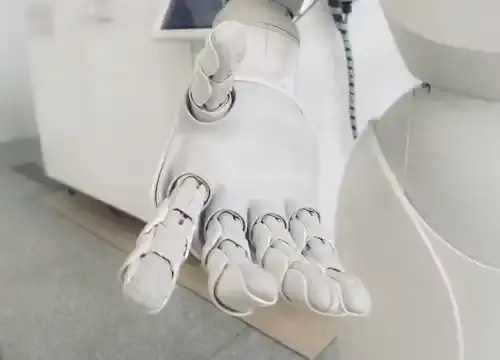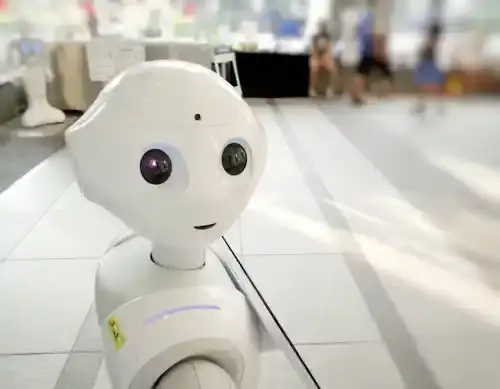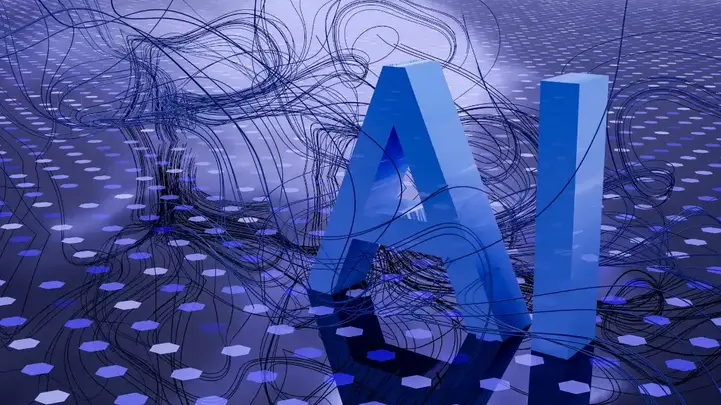Artificial Intelligence and the Future of Jobs: How to Adapt in the Age of Automation
In a world where technological progress is accelerating like never before, artificial intelligence is emerging as one of the most prominent innovations shaping our future. AI has gone beyond being a subject of science fiction to become a driving force in many industries, reshaping the way we work and live. With the increasing reliance on smart systems in everything from healthcare to transportation, many are wondering about the impact of this technology on jobs and skills in demand in the future.
This article addresses the critical questions about how AI affects the labor market and what it means for workers and businesses alike. We'll explore the challenges and opportunities that AI presents, and how we can enhance skills to stay relevant in a rapidly changing world. By understanding these dynamics, we can navigate the future of work with confidence and readiness.
Recommend
Artificial intelligence: definition and evolution

Definition of artificial intelligence
Artificial intelligence is a field of computer science that aims to create machines capable of thinking and acting in a way that mimics human intelligence. This includes the ability to learn, deduce, recognize patterns, natural language, and cognition.
Origin and development
Since its inception in the mid-twentieth century, artificial intelligence has undergone amazing advancements, from simple programs that mimic board games to complex systems that drive self-driving cars and help diagnose diseases.
Today's intelligent systems rely on a variety of technologies, including machine learning, neural networks, deep learning, and reinforcement learning. These technologies enable machines to improve their performance and make independent decisions based on previous data and experience, without the need for direct human intervention.
As AI advances, we are witnessing an expansion of its capabilities and applications, opening up new ground in how we interact with the world around us and how we think about work and creativity. Understanding this technology and its development is crucial for navigate the future that is rapidly taking shape before our eyes.
The future of jobs in the age of artificial intelligence

Expected changes in the labor market
With the advancement of artificial intelligence, we are witnessing the beginning of a new era in the labor market. This technology not only changes the way we do business, it redefines the functions themselves. Automation and smart systems are expected to lead to the disappearance of some traditional jobs, but in turn, new jobs will emerge that require specialized skills.
Jobs that are subject to change Jobs that rely heavily on routines and repetitive tasks are most likely to be affected by automation. However, there are opportunities for workers to shift to areas that require critical thinking and creativity, as it is difficult for machines to imitate.
Impact on different sectors Some sectors will be affected more than others. For example, the manufacturing and manufacturing sector may undergo a major transformation due to robotics and automation, while sectors such as information technology and health services may flourish thanks to developments in artificial intelligence.
New jobs emerging thanks to AI

AI opens the door to a wide range of new functions that did not exist before. These jobs require specialized skills and innovative thinking, and offer exciting opportunities for individuals to work in advanced technological fields.
Examples of new jobs Some examples of jobs created by AI include data engineers, AI developers, big data analysts, and machine learning experts. These functions require a deep understanding of modern technologies and the ability to work with vast amounts of data.
Skills required for new jobs To succeed in these jobs, individuals need a variety of skills such as programming, statistical analysis, emotional intelligence, and effective communication. The ability to learn quickly and adapt to new technologies is also crucial.
Challenges and opportunities

With the advent of these new jobs, come challenges such as the need for continuing education and specialized training. However, these jobs also provide opportunities for professional and personal growth, and contribute to a more dynamic and innovative economy.
In conclusion, we can clearly see how artificial intelligence is reshaping the labor market and opening up new horizons for the skills required in the future. We explored the challenges and opportunities presented by this technological development, and the importance of continuous learning and developing skills to adapt to rapid changes.
We must embrace a culture of continuous learning and innovation to be part of this exciting future. AI is not just a challenge, it is an opportunity for a new model of work that is creative and collaborative.
With the right preparation and flexibility in learning, we can not only adapt to the future of work, but also lead change and shape a world where everyone thrives. AI is key to a sustainable and prosperous world, and we must learn to work with it, not against it.
![]()
Which determines whether it smells good or bad?
Your nose can detect thousands of scents thanks to millions of odor receptors, shaping your experiences and memories. Smells trigger emotional responses, connect to past events, and even signal danger—like the foul scent of rotten eggs. From birth, our genes and experiences guide how we react to different odors. more- ADVERTISEMENT
![]()
How a failed experiment led to Einstein's first big revolution
The Michaelson-Morley experiment tried to detect the mysterious ether believed to carry light—but found nothing. This surprising result helped spark Einstein’s radical idea: light doesn’t need a medium, and its speed is always constant. That bold insight laid the foundation for the revolutionary theory of special relativity. more- ADVERTISEMENT
![]()
Bermuda Triangle Puzzle
The Bermuda Triangle remains a thrilling mystery filled with tales of vanishing ships, eerie time loss, and ghostly weather. Despite scientific theories and advanced research, the true cause of these disappearances continues to puzzle and intrigue the world. more- ADVERTISEMENT
![]()
The battle that every man fights but most of them don't discuss it
Men silently fight internal battles shaped by stress, depression, and rigid masculinity norms. Suppressing emotions and fearing judgment, they often hide their struggles. True strength lies in embracing vulnerability, fostering self-worth, and building open, supportive connections to break free from isolation and unrealistic expectations. more- ADVERTISEMENT
![]()
How to behave in a world of professional chaos: a guide to thriving amid uncertainty
Professional chaos can be your stepping stone to growth—embrace change, stay curious, build resilience, and nurture a flexible mindset. Surround yourself with a strong network, seek advice, and don’t forget to take care of yourself. Chaos isn’t the end—it’s the start of something new. more- ADVERTISEMENT
![]()
The history of the city of Samarra ... Iraq's Hidden Gem
Samarra, once a grand Abbasid capital, still stands with its iconic spiral minaret and rich Shia heritage. Though chosen as the capital of Islamic civilization in 2020, the city remains dusty and neglected, holding untold stories within its historic ruins. more- ADVERTISEMENT
![]()
75% of the global diet is produced by just 12 plants and 5 different animals
75% of the global diet is produced by just 12 plants and 5 different animals more- ADVERTISEMENT
![]()
Honoring Arab-American Heritage, Stories and Changemakers
Arab Americans have shaped U.S. culture for centuries, with waves of immigration starting in the 19th century. Today, they lead in law, literature, comedy, and medicine—like poet Khalil Gibran and comedian Maysoon Zayed. In 2022, April was officially designated as Arab-American Heritage Month to celebrate their contributions. more- ADVERTISEMENT
![]()
Virtual reality technologies: How are they changing the way we learn and entertain?
Virtual reality is transforming how we learn and play—students can explore ancient civilizations or the human body in 3D, while gamers and movie lovers dive into immersive worlds. It’s also sparking creativity, letting artists and designers bring bold ideas to life in virtual spaces. more- ADVERTISEMENT
![]()
Makkah: A Journey of Faith to the Most Holy Place on Earth
Makkah is more than a city—it’s a powerful spiritual journey. Standing before the Kaaba, climbing Jabal al-Nur, or praying at Mount Arafat offers a deep connection to history, faith, and humanity. For any traveler, Mecca promises a unique and unforgettable experience rooted in timeless Islamic heritage. more- ADVERTISEMENT





















